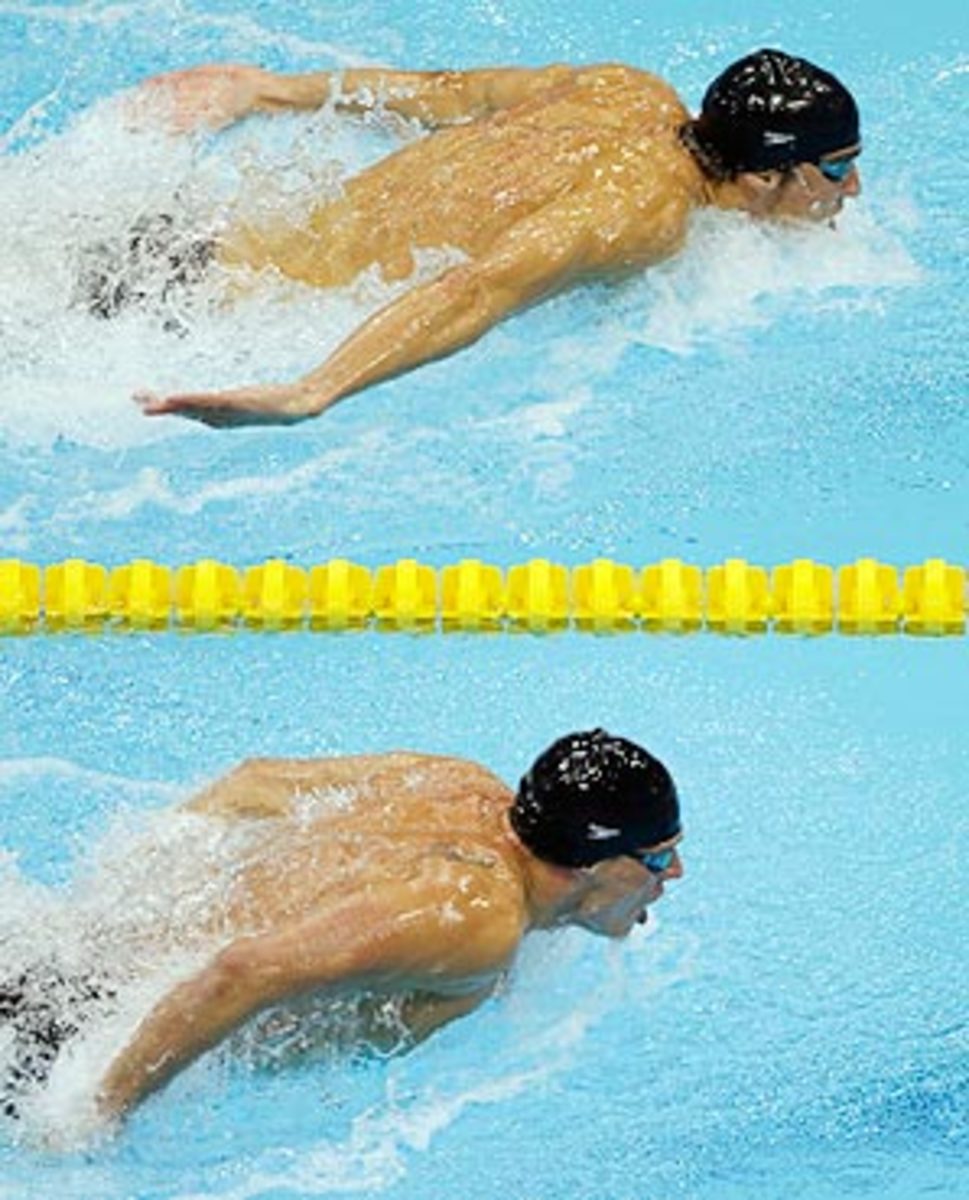Phelps flips script on Lochte with victory in the 200-meter IM
1. Michael Phelps taught Ryan Lochte a lesson. Phelps is the master of managing multiple swims in one night at the Olympics, meticulously planning his schedule in 2004 and 2008 to near perfection. London hasn't gone as planned, but he can now say he got the best of Lochte in their final Olympic head to head on a night both had multiple swims. Phelps won the 200 individual medley in 1:54.27 -- becoming the first man to win an individual event at three straight Olympics -- while Lochte had to settle for silver (1:54.90) in an event in which he holds the world record. Hungarian Laszlo Cseh took bronze (1:56.22), the fifth time over three Olympics he's stood on a podium topped by Phelps.
The man of the night was supposed to be Lochte, who swam two finals in 32 minutes in events he was the reigning world champion in. One bronze. One silver. It didn't work out too well. Lochte's Olympics are presumably over, unless he's surprisingly picked for the medley relay. His tally: two golds, two silvers, one bronze, one fourth. Phelps' tally: two golds, two silvers, one fourth, two events to go.
Phelps was the top qualifier into the 100 butterfly final (again mastering a double with 40 minutes between the 200 IM final and the 100 fly semis Thursday), and the U.S. has never lost the Olympic medley relay. Ultimately, Phelps (now with enough medals for every finger and toe) should finish these Olympics with a better medal haul than Lochte (now with 11 Olympic medals, second most among U.S. men ever). Who would have guessed that result after the first night at the Olympic Aquatics Centre?
2. Tyler Clary finally gets his moment. The man lived in Phelps' and Lochte's wake at the Olympic Trials (finishing third in the 400 individual medley, second to Phelps in the 200 butterfly and second to Lochte in the 200 backstroke). Between trials and the Olympics, Clary made headlines for criticizing Phelps' work ethic. Today, at last, he stepped ahead of Lochte to win the 200 backstroke in an Olympic record 1:53.41. It's been quite a stretch.
"It's complete redemption," Clary said.
Look at Clary's major championships medal collection. It was all silver and bronze before Thursday. It didn't look like that would change after the first 50 meters. Lochte was first. Clary was fourth. But Clary, the Michigan man, made up one position off each wall and passed Lochte (1:53.94) with about 25 meters to go. Japan's Ryosuke Irie (1:53.78) followed for silver.
3. Rebecca Soni can stake a claim as the greatest breaststroker in Olympic history. Soni broke her second world record in as many swims, becoming the first woman to dip under 2:20 in the 200 breast with a 2:19.59 to beat Japan's Satomi Suzuki and Russia's Yuliya Efimova, one of Soni's training partners. "I didn't try to focus on medals or records or anything," Soni said. "I just wanted to swim the race the way I knew I could. It's my goal since I was a little kid to go under 2:20."
Soni may not delve into the historic meaning of her second individual Olympic gold -- she's the first woman to repeat in a breaststroke -- but it pushes her into the discussion among the best in her discipline. Only one other woman has won two individual breaststroke golds -- South African Penny Heyns, whose only supporting medal was a bronze. Soni has two silvers to go with her golds in two Games.
The woman largely considered the best breaststroker in history because of her longevity is Australian Leisel Jones, who needed three Olympics to win one gold, three silvers and one bronze individually (Jones was fifth in her only event in London, the 100 breast). Soni's collection is arguably better in one fewer Games.





